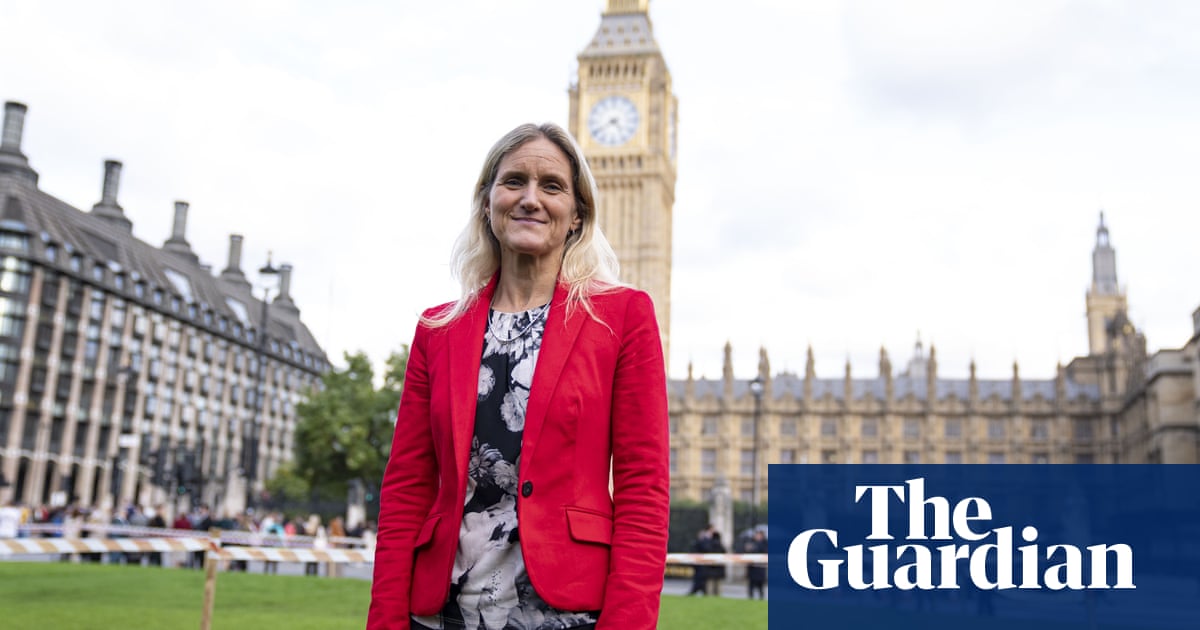A historic bill to legalise assisted dying will set out hardline safeguards, including lengthy prison sentences for coercion and powers for judges to cross-examine patients.
The Labour MP Kim Leadbeater said she believed she had put forward “the best possible legislation” but warned wavering MPs that parliament may not get another chance to vote again on the issue for another decade.
She pledged it would contain the “strictest protections and safeguards of any legislation anywhere in the world” amid growing concerns from some MPs over the potential for mission creep and coercion.
The bill is expected to run to 40 pages – believed to be one of the longest ever private members’ bills – and Leadbeater will stress to colleagues over the coming days that the bill has been the subject of exhaustive consultation.
But critics in parliament have raised alarm about the process of the bill, which has limited time for debate, and many have significant concerns about the potential for undue pressure and the risk of the scope of the bill widening under legal challenges.
Setting out the detail for the first time on Monday, Leadbeater’s bill will say:
-
Patients must be over 18, have the mental capacity to make a choice about the end of their life and must be terminally ill and expected to die within six months
-
They must express a ‘clear, settled and informed’ wish in two separate witnessed declarations
-
Two independent doctors must be satisfied that the person is eligible
-
The application must be approved by a high court judge who would hear from at least one of the doctors and may question the patient or anyone else involved
-
Medicine must be self-administered with doctors banned from assisting
-
Coercion of a patient would be a criminal offence punishable by up to 14 years in prison
Some critics of the bill however have said there are still questions over the safeguards – and have said there must be provisions against “doctor shopping” if patients do not get the preferred answer from their first choice of medic.
They are also expecting to ask questions as to whether a six-month prognosis includes those refusing treatment and whether doctors will have an assumption of mental capacity. An even more hardline approach would require a patient to be cross-examined in court by an advocate who would put the case before a judge for refusing the procedure.
Leadbeater saidthe vote on 29 November would be just the first step and would allow the bill to receive further scrutiny at later stages.
In comments responding to criticism over the lack of scrutiny of the bill, Leadbeater said it had been a “through and robust process” involving medical and legal experts, the palliative care and hospice sectors, and disability rights activists and faith leaders, as well as those with personal experience of watching a loved one die in difficult circumstances.
She said MPs still had three weeks to look at the bill before debate and added: “I hope MPs will agree with me that we can offer the safest choice to those who want it at the end of their lives, while at the same time working to make our already excellent palliative care provision even better and protecting the rights of people with disabilities, mental illness and other challenges to have all the support and care they need throughout their lives,” she said.
The pro-assisted dying side in parliament has an organised system, with designated MPs running the numbers for each of the parliamentary intakes. Those who have seen the most recent tallies say there are a number of members they expect to make final decisions within days of seeing the bill.
“For some it is a principle about not saying yes until they have seen the legislation,” one supportive MP said.
MPs with concerns about the process and potential widening of the scope of the legislation are being invited this week to meet Dr Sally Talbot, one of the architects of assisted dying in Western Australia and currently a member of the panel undertaking review of the law.
Those opposed have been hosting events with a number of disabled parliamentarians who oppose the changes, including the peer Tanni Grey-Thompson and Pam Duncan-Glancy, a Scottish Labour MSP, as well as academics and lawyers who have concerns about the process.
There are believed to be at least 100 Labour MPs who remain undecided and both sides say the numbers are a real unknown, with a significant number declining to attend any of the parliamentary events run from either side.
Some said the arguments in private and in parliament were becoming more bitter – with a deep resentment from many of the MPs who are opposed to the change at being lumped together with religious objectors who also campaign against abortion.
“We do not want this to turn into a culture war,” said one Labour MP who is opposed to the change.
While there are high-profile cabinet ministers, including the health secretary, Wes Streeting, and justice secretary, Shabana Mahmood, opposed to the law change, MPs have been told the majority of the cabinet intend to back the change, although they have been warned from becoming too involved in the debate on a free vote.
There are some influential names who remain undecided however, including the chancellor, Rachel Reeves, and the home secretary, Yvette Cooper.
Sarah Wootton of Dignity in Dying, which campaigns for a change in the law, said the bill was “the strongest proposal parliament has ever considered on improving choice and protections for dying people”.
It was “a practical, UK model for law change that will end the cruel and dangerous status quo, while introducing new safety measures,” she added.
“Three-quarters of the public agree that this is the right law for the UK, no matter where they live or who they vote for. Many have experienced the devastating effects of banning this option: witnessing prolonged, traumatic deaths despite the best care, or terminally ill relatives taking matters into their own hands at home or abroad.”
Gordon Macdonald of Care Not Killing, which opposes the legislation, said the bill was being “rushed with indecent haste and ignores the deep-seated problems in the UK’s broken and patchy palliative care system and the crisis in social care”.












